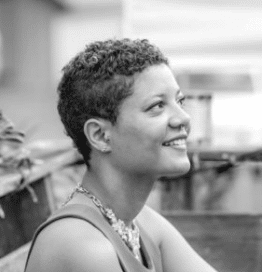Summary
Growing organizational research capacity requires both bottom-up and top-down changes that can be daunting to tackle. Hana Nagel will examine the challenge of scaling research ops through the lens of social change theory, showing how service design and systems thinking can be used to create a strategy to increase research’s impact on product. By building collaboration, connection and community, you can bring enough people together to turn research ripples into waves.
Key Insights
-
•
Social change often starts at the fringes with new patterns of interaction before rippling into mainstream systems.
-
•
Scaling UX research requires transforming not just outputs but behaviors and norms across diverse teams.
-
•
Systems change involves wicked problems with no single right solution and requires iterative, small-scale experiments.
-
•
Theory of change helps align multiple stakeholders by working backward from desired outcomes through intermediate events.
-
•
Service design can create environments and rituals that embed desired behaviors in organizational culture.
-
•
First-hand involvement of product owners in UX research shifts perceptions and accelerates adoption.
-
•
Empathizing with user values without trying to change them enables more effective grassroots behavior change.
-
•
Creating safe spaces for low-impact failures encourages more people to practice and learn UX research skills.
-
•
Building communities and coalitions sustains momentum and scales social proof across large enterprises.
-
•
Persistent adaptation and focusing on leverage points enable progress despite inevitable organizational setbacks.
Notable Quotes
"Waves are happening on the fringes of society where cultural codes can be suspended and new social patterns develop."
"Scaling UX research is a social and system change that requires creating new patterns of interaction over time."
"Systems change is a wicked problem with many intertwined elements and no immediate way to know if your solution is right."
"The theory of change is a tool that helps you plan social impact by working backwards from the outcome you want."
"First-hand engagement with UX research is what convinces product owners it doesn’t slow down development but actually speeds it up."
"All feelings are valid when introducing new behaviors; you’re not trying to change the underlying values."
"We have to create safe spaces where people can make mistakes with low impact and learn from them."
"Act local but think global: optimize solutions for specific contexts then scale in small chunks."
"Our goal is to facilitate change by giving others ownership of the problem and solution so they take responsibility."
"It’s not incumbent upon you to finish making this world a better place, but neither are you free to desist from it."
Or choose a question:















More Videos

"Design operations ensures the processes and systems are in place so designers can create their best work."
Angelos ArnisNavigating the Rapid Shifts in Tech's Turbulent Terrain
October 2, 2023

"Interviewing for design ops needs a special toolkit that shows how to present your skills and prepare effectively."
John Calhoun Rachel PosmanBring your DesignOps Story to Life! The Definitive DesignOps Book Jam
October 3, 2023

"Design is often a subsidiary of product, really there to serve engineering—wireframe people."
Alfred KahnA Seat at the Table: Making Your Team a Strategic Partner
November 29, 2023

"Personas need minds of their own that push back, not perfectly behaved models."
Dan WillisEnterprise Storytelling Sessions
June 3, 2019

"The pain you feel in driving change is the pain of growth—you have to sign up for it and keep going."
John Maeda Alison RandAbout Design Organizations (Videoconference)
May 13, 2019

"Empathy for us needed to be redefined from problem-based to solution-based to avoid an us versus them mindset."
Anat Fintzi Rachel MinnicksDelivering at Scale: Making Traction with Resistant Partners
June 9, 2022

"Craft should evolve from making a beautiful final object to serving as a facilitative anchor in enterprise UX."
Uday GajendarThe Wicked Craft of Enterprise UX
May 13, 2015

"We recognized recurring challenges: lack of visibility, proving value, and coordinating across teams."
Kristin SkinnerTheme 1 Intro
September 29, 2021

"The Colab team members didn’t just interview cleaners—they became cleaners for weeks to truly understand issues and design better policies."
Maish NichaniSparking a Service Excellence Mindset at a Government Agency
December 9, 2021
















